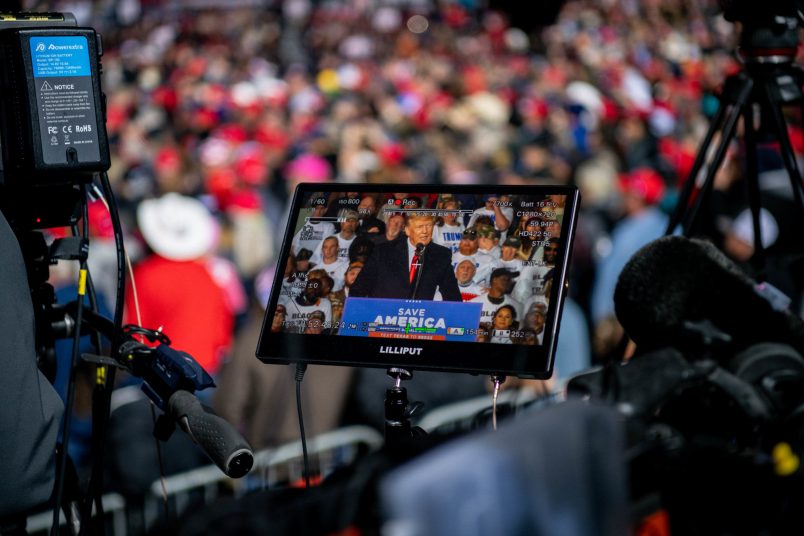I wanted to flag this article to you. It’s a fascinating look at right-wing South Korean YouTubers and President Yoon’s recent attempt to impose martial law in the country, which ended with Yoon being impeached and removed from power. It matches with bits and pieces of what I’ve been able to pick up in the English language press in South Korea as well as from various commentators who write in English on social media.
One big takeaway is that South Korea is similarly awash in right-wing and left-wing YouTubers who have similarly either destabilized trust in traditional media or taken advantage of that lack of trust, depending on whether you’re on Team Chicken or Team Egg. The trajectory there seems more recent. A lot of it is over just the last two or three years, while in the U.S. these trends date back significantly further. But the most interesting detail is that this world seems to be a big part of the answer to a question that still looms over the whole attempted coup, which is: “what was President Yoon thinking?”
This isn’t the Cold War where you could either be fearing a communist takeover or exploit those fears as a justification for a coup. While South Korea’s democratic era only goes back to the late 1980s, it’s deeply entrenched. And while there was a protracted political crisis of sorts in the country, it really wasn’t one that anyone imagined leading to a replay of things that happened in the country in the 1960s of 1970s. And this isn’t some statement of naiveté: how the whole thing played out vindicates this perspective. The country’s reaction to the attempt can best be described as a widespread “What the fuck?” Like not even, “this won’t stand!” or “we’ll defend our democracy!”, though those were there too. The immediate reaction to Yoon’s move was as much bafflement as fear or anger. The whole thing was so crazy and out of left field that people struggled to understand what Yoon had even been thinking. That’s why the attempted coup played out as it did and why Yoon is currently out of power and looking at likely treason charges.
So back to our far-right YouTubers. The gist is that Yoon was basically living in a hothouse of right-wing Korean YouTube fake news — the opposition is plotting with North Korea!, the elections are overrun by voter fraud! — that he both appears to have bought into these conspiracy theories and also imagined that a big slice of the country did too. Whether this is precisely true or is a total explanation is a secondary matter to me. As we’ve learned from recent stateside experience, the world of early 21st century media and politics is one in which belief is highly motivated and volitional. You believe what is helpful to believe. You often “believe” as a form of aggression. I don’t know nearly enough about Korean politics to answer this question of the role of alternative media in this story. I’ll be curious what conclusions more knowledgable people come to over time. But my impression is that this is at least part of the story.
It’s an imperfect analogy. But it reminded me of a revelation some of us had in the latter part of the first Trump administration watching the actions of Bill Barr, who of course many DC commentators viewed as an “institutionalist” who would keep Trump on the rails. Barr of course did part ways with Trump toward the very end and would not go along with what culminated on January 6th. Low bar, but I guess give everyone their due. But he went along with and enabled quite a lot. And the answer was simple: what made you think Bill Barr wouldn’t be awash in the Fox News Cinematic Universe just as much as every other right-wing white Catholic guy over seventy years old? It makes perfect sense. Of course he would.
These stories and analogues also grant a degree of perspective, humility and perhaps bits of encouragement as we try to make sense of our own situation just in advance of the beginning of the second Trump administration. When we think about the alternative media landscape or Kamala Harris’ rush decisions from late July until Election Day, it’s easy to get the idea that the world as we have it came down to the decisions of this or that high-profile political or journalistic elite. When we see very similar events playing out in very different political cultures we’re reminded that we always greatly overplay the role of individual decision-making. We are in fact awash in big global social, cultural and political trends that we only partly understand. We play important roles navigating these winds and tides. But the winds and tides themselves aren’t of our making.
In any case, read the piece. It’s a really fascinating read.




